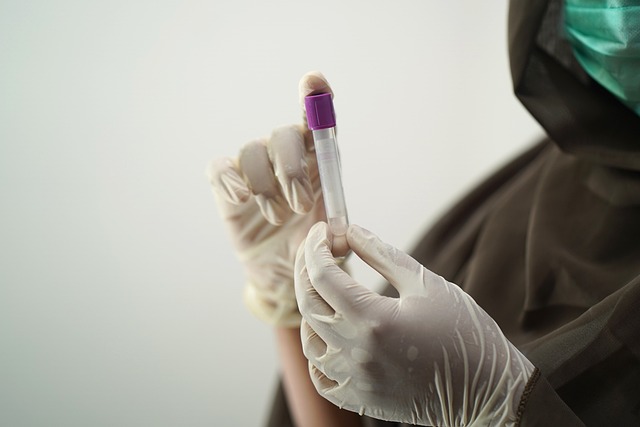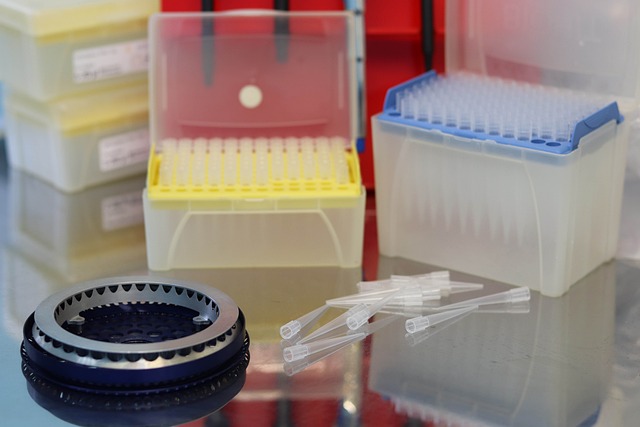The UK Advanced Thyroid Blood Test is a sophisticated diagnostic tool that provides a comprehensive evaluation of thyroid function, offering more detailed insights than standard TSH tests. It includes measurements of T4, T3, and antibodies (TPOAb and TgAb), as well as reverse T3 (rT3) and the free T4 index for a thorough understanding of thyroid health and autoimmune activity. This test is crucial for diagnosing and managing thyroid disorders like hypothyroidism, hyperthyroidism, and subclinical diseases by detecting early or subtle abnormalities. Its advanced nature also allows for the assessment of liver function markers, such as ALT, AST, bilirubin, and GGT, which are instrumental in diagnosing and monitoring liver conditions like hepatitis, cirrhosis, and fatty liver disease. This integration of liver parameters with thyroid evaluation offers a broader health overview, potentially revealing connections between thyroid and liver issues. The test's holistic approach enhances diagnostic accuracy and supports ongoing monitoring of diseases, contributing to personalized healthcare and informed, tailored care for patients with thyroid or hepatic conditions. It underscores the importance of advanced diagnostics in the field of endocrinology and aligns with the growing demand for individualized treatment approaches in modern healthcare systems.
Exploring the intricacies of hepatic health, this article serves as an authoritative guide for medical professionals on the multifaceted UK Advanced Thyroid Blood Test. It delves into the nuances of liver function markers within this test, offering a thorough examination of its components and clinical implications. Understanding the interplay between thyroid dysfunction and hepatic enzymes is crucial for accurate diagnosis and effective patient care. The article is structured to provide a clear overview followed by an in-depth analysis of the markers involved and concludes with practical insights on interpreting test results in the context of thyroid disorders, ensuring medical practitioners are well-equipped to leverage this diagnostic tool effectively within the UK healthcare system.
- Understanding the UK Advanced Thyroid Blood Test: An Overview for Medical Professionals
- Comprehensive Analysis of Liver Function Markers in the UK Advanced Thyroid Blood Test
- Interpreting Results and Clinical Implications of the UK Advanced Thyroid Blood Test for Thyroid Disorders
Understanding the UK Advanced Thyroid Blood Test: An Overview for Medical Professionals

The UK Advanced Thyroid Blood Test is a comprehensive diagnostic tool that allows medical professionals to assess thyroid function with a high degree of precision. This test panel extends beyond the standard thyroid function tests, such as TSH (thyroid-stimulating hormone), T4, and sometimes T3, by incorporating additional markers that provide a more nuanced view of thyroid health. These may include antibodies like thyroperoxidase antibodies (TPOAb) and thyroglobulin antibodies (TgAb), which are indicative of autoimmune thyroid disease, as well as reverse T3 (rT3) and free T4 index, which offer insights into the metabolism and peripheral conversion of thyroid hormones. Understanding these components is crucial for accurately diagnosing and managing thyroid disorders, including hypothyroidism, hyperthyroidism, and subclinical thyroid disease. The test’s ability to detect early or subtle abnormalities makes it an invaluable asset in the armamentarium of medical professionals dealing with thyroid dysfunction.
Furthermore, the interpretation of the UK Advanced Thyroid Blood Test requires a comprehensive understanding of clinical context and patient history. Medical professionals must consider factors such as patient symptoms, comorbidities like depression or obesity, and medication use, which can influence thyroid hormone levels. The integration of this test into a patient’s overall clinical picture is essential for optimal treatment outcomes. It is also important to note the evolving landscape of thyroid diagnostics, with ongoing research contributing to a deeper understanding of thyroid physiology and pathophysiology. This test not only aids in the diagnosis but also monitors disease progression and response to therapy, thereby playing a pivotal role in the ongoing care of patients with thyroid disorders.
Comprehensive Analysis of Liver Function Markers in the UK Advanced Thyroid Blood Test

In the United Kingdom, the assessment of thyroid function is a critical aspect of endocrine diagnosis and management. The UK Advanced Thyroid Blood Test represents a sophisticated approach to evaluating thyroid health, offering a detailed analysis that includes a comprehensive panel of markers. This test extends beyond the conventional TSH (Thyroid-Stimulating Hormone) measurement, incorporating additional parameters such as free T4 and free T3 levels, which provide a more nuanced understanding of thyroid status. For liver function specifically, the test includes key liver markers that are pivotal in diagnosing and monitoring conditions like hepatitis, cirrhosis, and fatty liver disease. These markers, including liver enzymes such as ALT (Alanine Aminotransferase) and AST (Aspartate Aminotransferase), along with bilirubin and gamma-glutamyl transferase (GGT), offer valuable insights into the hepatic system’s state. The inclusion of these liver function markers in the UK Advanced Thyroid Blood Test allows for a broader perspective on overall health, potentially identifying thyroid issues that may be intertwined with liver dysfunction or vice versa. This comprehensive approach facilitates early detection and intervention, which is paramount in the effective management of thyroid disorders and related hepatic conditions.
The integration of liver function markers within the UK Advanced Thyroid Blood Test underscores the importance of a holistic view in endocrine diagnostics. The test’s ability to assess a range of thyroid-related hormones alongside liver enzymes provides a more complete picture of an individual’s endocrine and hepatic health. This integrated analysis is particularly beneficial for patients presenting with symptoms that may suggest thyroid or liver issues, as it can streamline diagnostic efforts and reduce the need for multiple separate tests. Additionally, the test’s utility is not limited to initial diagnoses; it also serves as a valuable tool for monitoring disease progression or therapeutic response over time. The data obtained from this advanced blood test contributes significantly to personalised treatment plans, ensuring that patients receive the most informed and tailored care possible, which is increasingly becoming a standard expectation in healthcare delivery.
Interpreting Results and Clinical Implications of the UK Advanced Thyroid Blood Test for Thyroid Disorders

The UK Advanced Thyroid Blood Test is a comprehensive diagnostic tool that enables medical professionals to evaluate thyroid function with greater precision than traditional tests. Interpreting the results of this advanced panel involves assessing multiple parameters, including thyroid-stimulating hormone (TSH), free thyroxine (FT4), and free triiodothyronine (FT3) levels. These measurements provide a more nuanced understanding of thyroid status, as they can detect subtle dysfunctions that may be overlooked by TSH alone. The clinical implications of this test are significant, particularly in the context of diagnosing and managing subclinical hypothyroidism or hyperthyroidism, where symptoms may be minimal or non-specific. For instance, elevated levels of TSH, FT4, and FT3 can indicate an overactive thyroid, while low levels may suggest an underactive thyroid. The advanced test also includes antibody markers, which are crucial for diagnosing autoimmune thyroid diseases like Hashimoto’s and Graves’ disease. By incorporating these additional markers, healthcare providers can tailor treatment plans to individual patient needs, optimizing outcomes and improving quality of life for those with thyroid disorders. Understanding the interplay between these biomarkers allows for a more personalized approach to thyroid management, which is essential in the dynamic landscape of endocrinology.
In conclusion, the UK Advanced Thyroid Blood Test emerges as an invaluable tool for medical professionals in accurately assessing thyroid function and its implications on liver health. The comprehensive analysis of liver function markers within this test provides a clearer picture of overall patient well-being, facilitating better-informed clinical decisions. As the intricacies of thyroid disorders continue to unfold, understanding the interplay between thyroid dysfunction and hepatic parameters is crucial. The insights garnered from the test not only enhance the diagnostic process but also contribute to personalized treatment plans, ultimately improving patient outcomes. Medical professionals are encouraged to integrate this advanced testing into their practice to optimize care for those with thyroid conditions.
